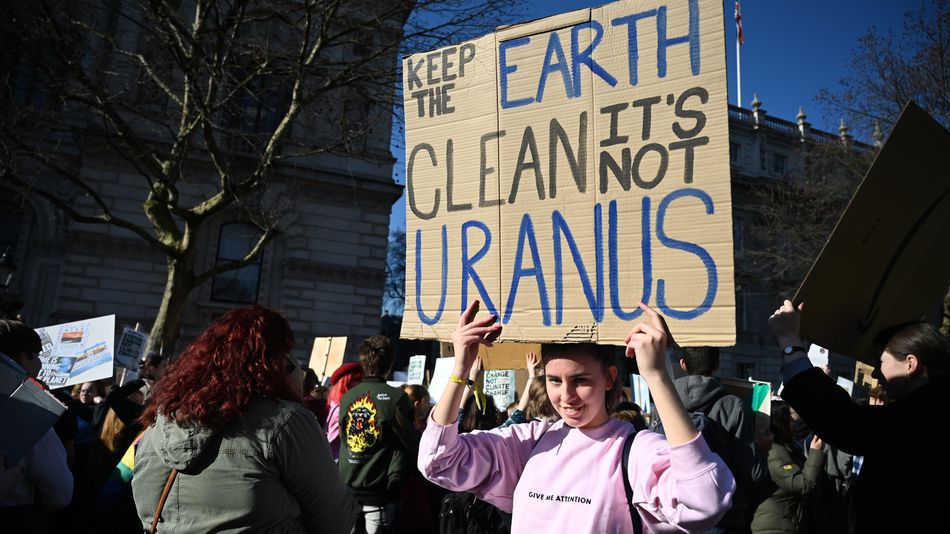
Ask ARSE: What Can I Do To Help - Part 2
Share
A devout follower has dropped us a line asking for some advice on recent issues and we are more than happy to help.
So let us go ahead and... Ask ARSE.
" Hey ARSE, I am ashamed to say I wasn't involved in the climate strike the other day because I just feel sometimes there's nothing I can do to help.
I know that's wrong and if there's nothing I can do to help the planet then why bother doing anything at all if it will only get worse?
These are the thoughts that get into my head and I lose faith in humanity, and I guess myself too.
Just wondering what I should do.
Thanks a lot,
Bec."
Thank you for reaching out mate and it is clear the issue means a lot to you hence your emotional connection.
This is not a bad thing! It means you value it.
The day you stop feeling something for an issue, or even a friends birthday is the day you mightn't care anymore. But even hopelessness and despair mean that although you feel negative, you aren't indifferent.
Indifference is the true enemy of such important issues.
Now, to your question.
We can't tell you what you should do, but there are certainly some courses of action you can take so you can feel more practically involved in the climate crisis.

1. Don't have kids.
We understand we came out a little strong, but hear us out.
The single most effective thing an individual can do is to stop creating carbon footprints in the first place, then we wouldn't have to reduce them.
A single human's existence is worth over 30 times the amount of carbon as the common car and almost 60 times that in flights.
Our planet is a room, whether people want to acknowledge it or not, and it is quickly filling with pollutants, waste, plastic and other people that cut the natural environment down drastically just by their existence.
Fewer people filling this room means less of the aforementioned and more healing the planet through clean air, reforestation and cleaner water.

2. Eat more GMO's, less organic, and less food in general.
Many people fall into the trap that met is the numero uno bad guy in the food industry that creates a big black mark on the emissions map.
But...
The denser the food, such as meat, the less of it we need to eat.
To eat the equivalent calories of a single steak you'd need to eat about 5-6 times that in its vegetable counterpart.
Additionally, common vegetables ravage land through farming and require far more intensive means if doing so.
Organic vegetables are much worse for the environment for this exact reason, the same amount of farming for an organic vegetable will produce a full 25% lower yield.
This is devastatingly bad for the environment to take a hit for a quarter less of the food and there is no evidence to say that organic is better for us. At all.
The answer?
Genetically Modified Foods reduce pesticide use by nearly 40% and yield more calories for the same amount of effort at a considerable 22%.
Find more info on the analysis of GMO options here.

3. Cherish water, like really.
Most people shower twice a day, for an average of 8 minutes at a time, so let's say 16 minutes.
In this timeframe, about 65 or so litres of water is down the drain with applicable energy costs associated with it.
A family of four can multiply this by eight, creating a staggering and hugely wasteful trend.
A simple way to curb this immediately is to get under the shower, turn it off, lather up, wash it off like you would your car or dog (if you are a sane person).
Doing so can cut down the individuals shower by a massive 80%.
Do this twice for the two-a-day bathers and follow suit with the family of four.
What if the entire population of a city, country, or the world did this one simple trick?
Thanks for the question Bec and we hope these answers find you in high spirits.
Let us know how you get on having no kids, eating hearty lab-grown foods and minimal bathing time.
Until next time, look to the skies as we thrust hard into the deep unknown...
#Space_Aus




